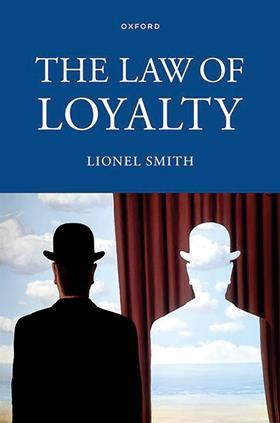Where does loyalty begin and end?
The Law of Loyalty
Lionel Smith
£97, OUP
★★★★✩
The definition of loyalty in the Oxford English Dictionary is ‘faithful adherence to one’s promise, oath, word of honour, etc’. Most of us expect loyalty from certain relationships, be it our personal relations with family and friends, or professional relations, whether with our employer, lawyer, accountant and so on.
Our personal relationships tend not to be regulated (in law) and this is set apart from our professional relations which lean more towards the opposite. A duty of care is often formed and loyalty is expected – exceptions apply.

So, what then of the title of this book? This is a study of the principles that govern the use of legal powers which are held for ‘other regarding’ ends. Addressing both public and private law, and examining both common and civil law, the study offers a theory of how western law governs a situation in which one individual has been given permission (and authority) to perform an activity, task or assignment on behalf of another person.
The claim that public and private law share common principles governing powers suggests that drawing an overly stark distinction between the two legal systems is incorrect. Despite being very different legal fields, the argument contends that they are brought together by the application of the less well-known distinction between the laws governing our own actions and those governing our actions on behalf of others.
Lionel Smith explains in the introduction that this study is mainly concerned with how the law governs these circumstances. This is done by delving deeper into the principles which administer those situations.
Complete with a table of cases, the survey discusses the ambitions of the argument, the concept, the role of ‘loyalty’, conflicts and managing them, duty of commitment, duty of care, and much more. The book shows the vast selection of circumstances in which someone can use their authority to execute a ‘mission’ to act on behalf of others. The study explains the fundamental difference between public and private contexts.
If you have ever wondered about loyalty in both private and public law, or have wondered whether acting for others in a certain capacity has logic and unity, then this study is for you.
Zainab Zaeem is a solicitor at Runnymede Law, London































No comments yet